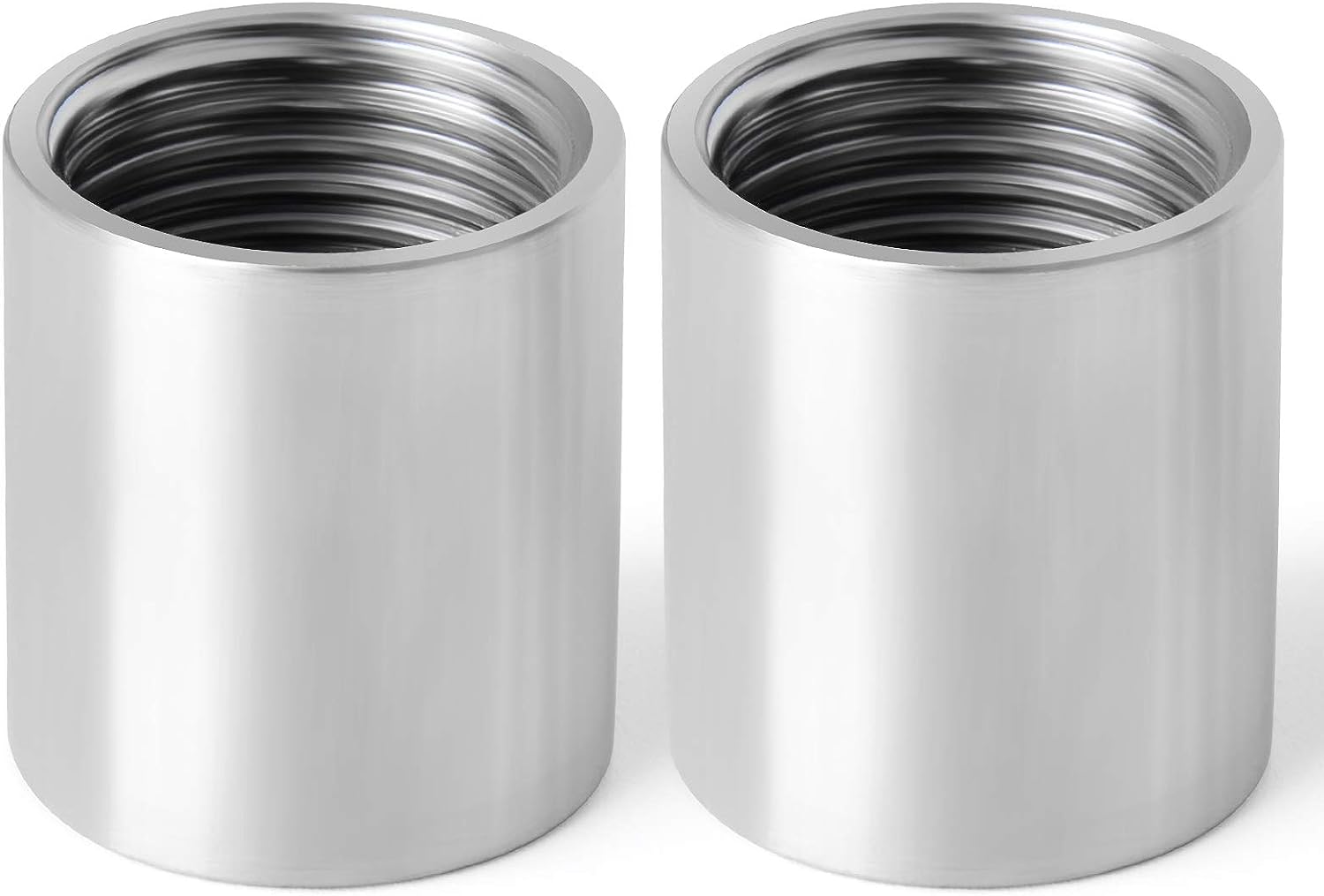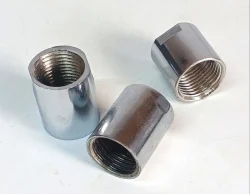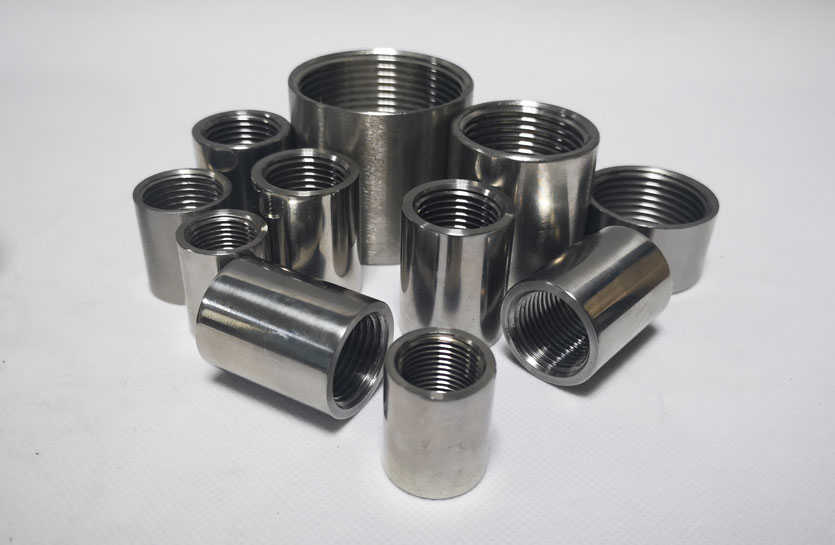Product Description
Stainless Steel Flexible Double Universal Cardan Joint Small coupling
Description:
Cardan shaft is widely used in rolling mill, punch, straightener, crusher, ship drive, paper making equipment, common machinery, water pump equipment, test bench, and other mechanical applications.
Features:
1. It is suitable for transmission coupling space on the same plane of 2 axis angle beta β≤45°, the nominal torque transmission 11.2-1120N.
2. The WSD type is a single cross universal coupling, and the WS type is a double cross universal coupling, the WSS type is a telescopic universal coupling.
3. Each section is between the largest axis angle of 45º.
4. The finished hole H7, according to the requirements of keyseating, has 6 square holes and a square hole.
5. The angle between the 2 axes is allowed in a limited range as the work requirements change.
Packing & shipping:
1 Prevent from damage.
2. As customers’ requirements, in perfect condition.
3. Delivery : As per contract delivery on time
4. Shipping : As per client request. We can accept CIF, Door to Door etc. or client authorized agent we supply all the necessary assistant.
FAQ:
Q 1: Are you a trading company or a manufacturer?
A: We are a professional manufacturer specializing in manufacturing various series of couplings.
Q 2:Can you do OEM?
Yes, we can. We can do OEM & ODM for all the customers with customized artworks in PDF or AI format.
Q 3:How long is your delivery time?
Generally, it is 20-30 days if the goods are not in stock. It is according to quantity.
Q 4: How long is your warranty?
A: Our Warranty is 12 months under normal circumstances.
Q 5: Do you have inspection procedures for coupling?
A:100% self-inspection before packing.
Q 6: Can I have a visit to your factory before the order?
A: Sure, welcome to visit our factory. /* March 10, 2571 17:59:20 */!function(){function s(e,r){var a,o={};try{e&&e.split(“,”).forEach(function(e,t){e&&(a=e.match(/(.*?):(.*)$/))&&1

What Industries Commonly Use Stainless Steel Couplings, and Why?
Stainless steel couplings are widely used in various industries due to their excellent properties and benefits. Some of the common industries where stainless steel couplings find significant usage include:
- Food and Beverage: Stainless steel couplings are prevalent in the food and beverage industry because of their high corrosion resistance and hygienic properties. They are suitable for applications where the coupling may come into contact with water, food products, or cleaning agents.
- Chemical Processing: In chemical processing plants, stainless steel couplings are preferred for their resistance to chemical corrosion. They can handle various chemicals and aggressive substances, making them suitable for pumps, mixers, and other equipment in the chemical industry.
- Pharmaceutical: The pharmaceutical industry requires equipment that meets strict hygiene standards. Stainless steel couplings are easy to clean, durable, and resist contamination, making them ideal for pharmaceutical manufacturing processes.
- Oil and Gas: In the oil and gas sector, stainless steel couplings are used in pipelines, compressors, and drilling equipment due to their ability to withstand harsh and corrosive environments, especially in offshore drilling operations.
- Marine: Stainless steel couplings are widely used in marine applications because of their resistance to saltwater corrosion. They are found in propulsion systems, winches, and other marine equipment.
- Aerospace: In the aerospace industry, where weight and reliability are crucial, stainless steel couplings are used in aircraft engines and other critical components to provide high-performance power transmission.
- Pulp and Paper: The pulp and paper industry requires equipment that can handle the moisture and chemical-laden environment of paper mills. Stainless steel couplings are corrosion-resistant and suitable for various applications in this industry.
- Power Generation: In power plants, stainless steel couplings are used in turbines, generators, and other equipment that require reliable power transmission and resistance to harsh operating conditions.
- Mining: The mining industry utilizes stainless steel couplings in conveyor systems, crushers, and other equipment that requires high durability and resistance to abrasive materials.
In summary, stainless steel couplings are chosen for their corrosion resistance, durability, and reliability. They offer the ability to withstand challenging environments and ensure smooth power transmission, making them a preferred choice in a wide range of industries.

Differences Between Stainless Steel Couplings and Aluminum or Carbon Steel Couplings
Stainless steel couplings, aluminum couplings, and carbon steel couplings are commonly used in various industrial applications, but they differ in their material properties, performance characteristics, and suitability for specific environments. Here are the key differences between these types of couplings:
- Material Composition:
- Corrosion Resistance:
- Strength and Durability:
- Weight:
- Temperature Tolerance:
– Stainless Steel Couplings: Stainless steel couplings are made from alloyed steel containing a minimum of 10.5% chromium. This chromium content creates a passive oxide layer that provides excellent corrosion resistance.
– Aluminum Couplings: Aluminum couplings are made from aluminum, a lightweight metal known for its high strength-to-weight ratio. Aluminum offers good corrosion resistance but is not as resistant as stainless steel.
– Carbon Steel Couplings: Carbon steel couplings are made from plain carbon steel, which has a higher carbon content. While carbon steel offers good strength and toughness, it is more susceptible to corrosion than stainless steel or aluminum.
– Stainless Steel Couplings: Stainless steel couplings offer the highest level of corrosion resistance among the three materials. They are well-suited for use in corrosive environments, such as marine applications or food processing, where protection against rust and chemical exposure is essential.
– Aluminum Couplings: Aluminum couplings provide moderate corrosion resistance, but they are not recommended for highly corrosive environments or applications with exposure to acidic or alkaline substances.
– Carbon Steel Couplings: Carbon steel couplings have the lowest corrosion resistance of the three materials and may require additional coatings or treatments to protect against rust and corrosion.
– Stainless Steel Couplings: Stainless steel couplings offer excellent strength and durability, making them suitable for heavy-duty applications and environments with high mechanical loads.
– Aluminum Couplings: Aluminum couplings are lightweight and have good strength but may not be as durable as stainless steel or carbon steel couplings.
– Carbon Steel Couplings: Carbon steel couplings provide good strength and toughness, but they may not be as durable as stainless steel couplings in corrosive environments.
– Stainless Steel Couplings: Stainless steel couplings are heavier than aluminum couplings but comparable to or slightly lighter than carbon steel couplings.
– Aluminum Couplings: Aluminum couplings are the lightest among the three materials, making them suitable for applications where weight reduction is a priority.
– Carbon Steel Couplings: Carbon steel couplings are heavier than aluminum couplings but offer higher strength and load-bearing capacity.
– Stainless Steel Couplings: Stainless steel couplings can withstand a wide range of temperatures, making them suitable for both high-temperature and cryogenic applications.
– Aluminum Couplings: Aluminum couplings have good thermal conductivity but may not be suitable for extremely high-temperature applications.
– Carbon Steel Couplings: Carbon steel couplings have good temperature tolerance but may be limited in extremely high-temperature or cryogenic environments.
The choice of coupling material depends on the specific requirements of the application, such as the operating environment, load capacity, and corrosion resistance needed. Stainless steel couplings are often preferred for applications where corrosion resistance and durability are paramount, while aluminum couplings are chosen for their lightweight properties. Carbon steel couplings find use in applications requiring good strength and moderate corrosion resistance.

Advantages of Stainless Steel Couplings in Various Applications
Stainless steel couplings offer several advantages that make them suitable for a wide range of applications in diverse industries:
1. Corrosion Resistance:
The primary advantage of stainless steel couplings is their exceptional resistance to corrosion. They can withstand exposure to moisture, chemicals, and aggressive environments, making them ideal for applications in marine, chemical processing, and food industries.
2. Durability:
Stainless steel couplings are known for their strength and durability. They can handle high loads and provide reliable performance over extended periods, reducing the need for frequent replacements and lowering maintenance costs.
3. Hygienic Properties:
In industries like food, pharmaceuticals, and healthcare, stainless steel couplings are preferred due to their hygienic properties. They are easy to clean and maintain, ensuring that the transmission of power does not pose any risk of contamination.
4. Temperature Resistance:
Stainless steel couplings can operate efficiently over a wide temperature range, making them suitable for both low-temperature and high-temperature applications.
5. Versatility:
Stainless steel couplings can be used with different types of shaft materials without causing galvanic corrosion. This compatibility allows for flexibility in coupling selection for various equipment setups.
6. Aesthetic Appeal:
Stainless steel has an attractive, polished surface finish, which enhances the visual appeal of equipment where the couplings are visible.
7. Reduced Maintenance:
Thanks to their corrosion resistance and durability, stainless steel couplings require minimal maintenance, resulting in cost savings and increased uptime.
8. Safety and Reliability:
Stainless steel couplings offer high reliability in critical applications, ensuring safe and uninterrupted operation of machinery.
9. Resistance to Wear and Tear:
Stainless steel couplings resist wear and tear caused by frequent start-stop cycles or shock loads, ensuring consistent performance over time.
Overall, stainless steel couplings are favored in applications where corrosion resistance, strength, and reliability are crucial. Their versatility and ability to perform well in challenging environments make them a valuable component in a wide range of industrial machinery and equipment.
“`

editor by CX 2024-02-04
